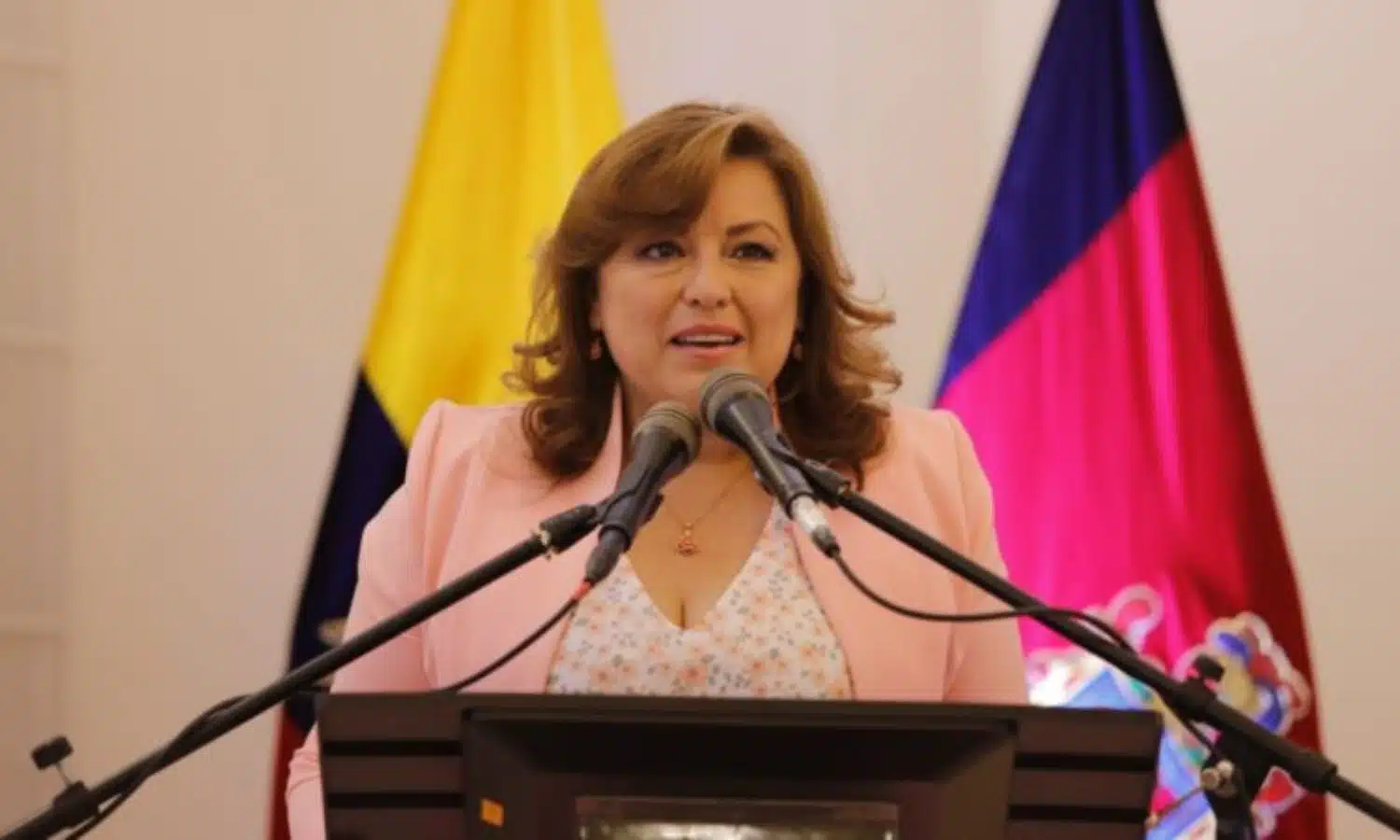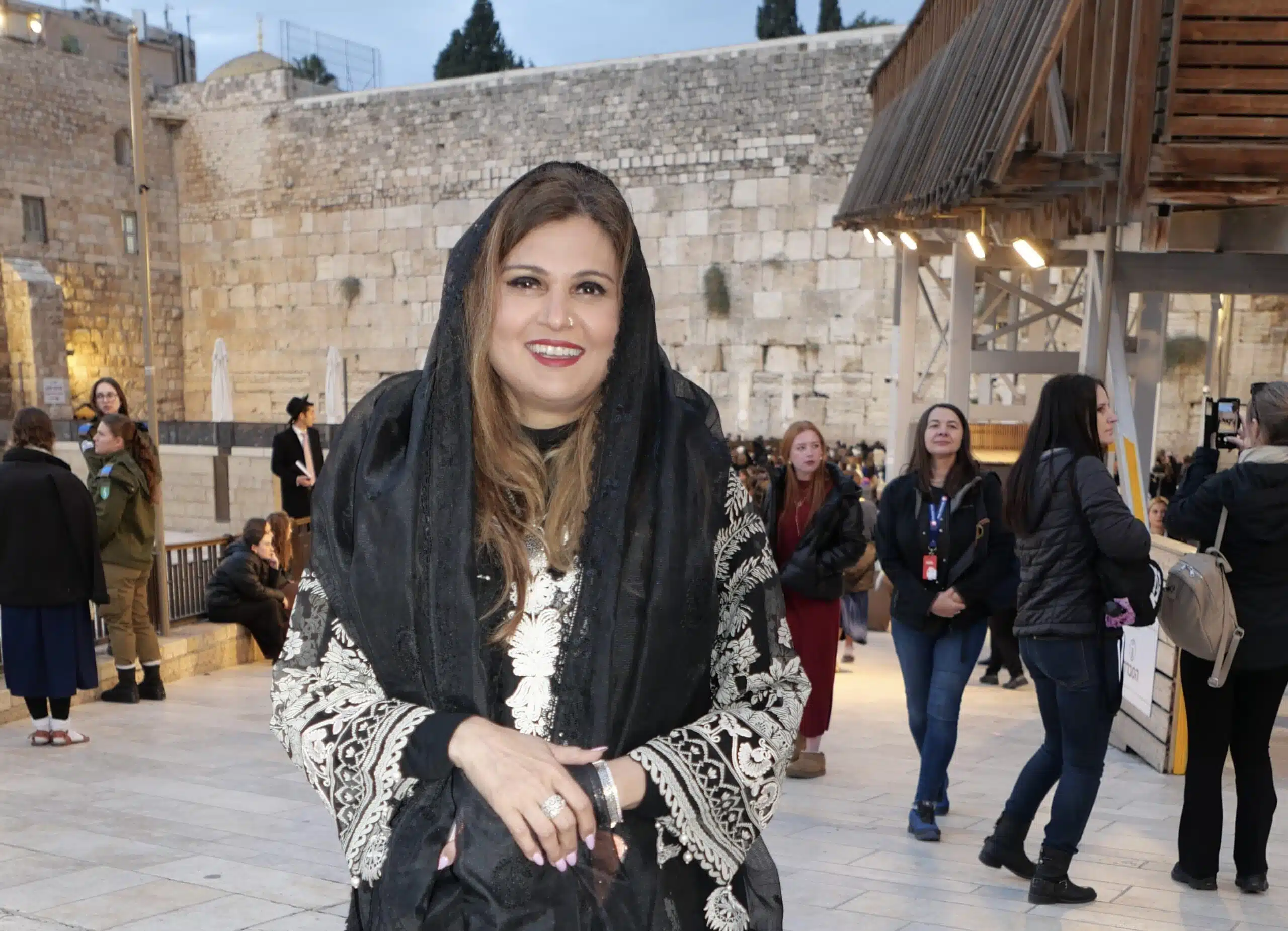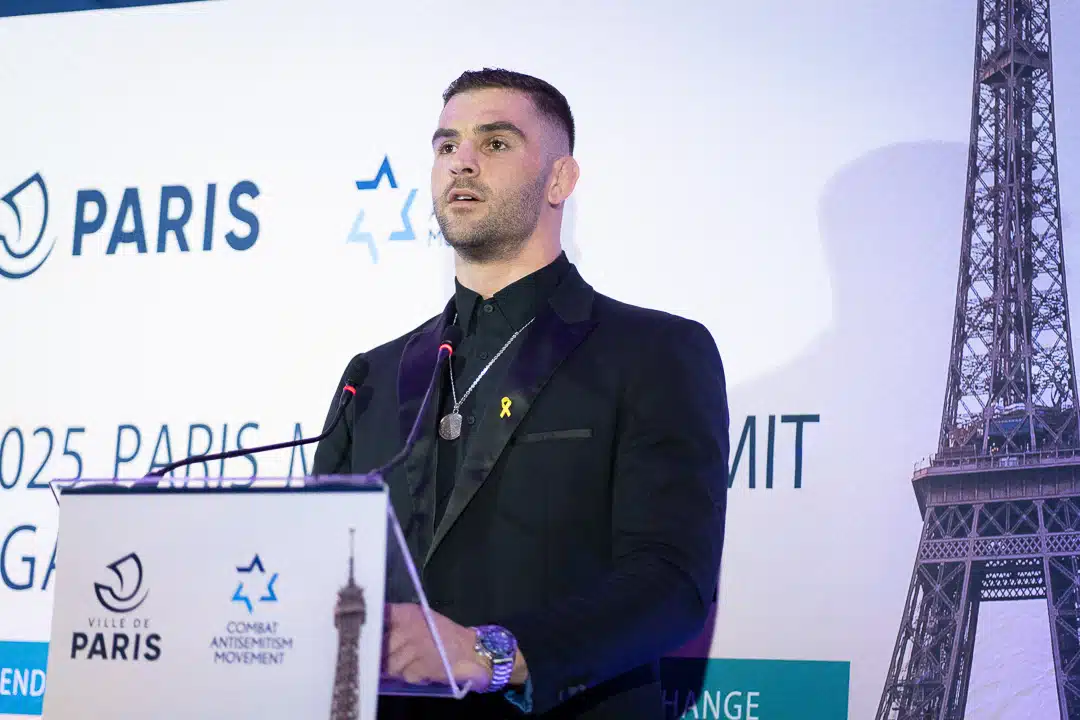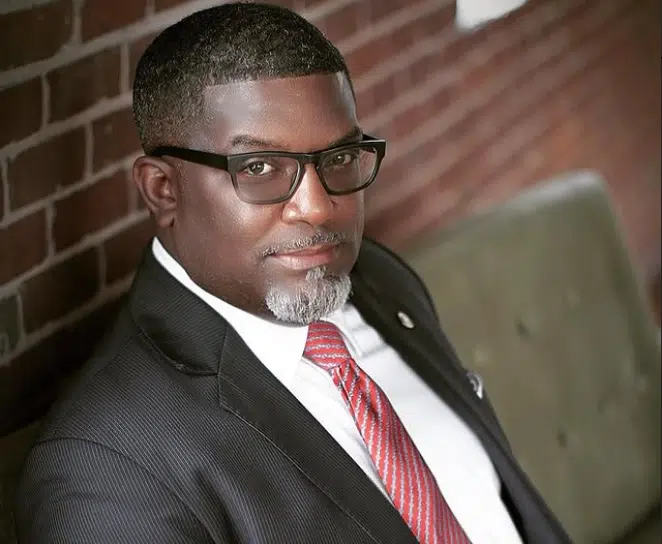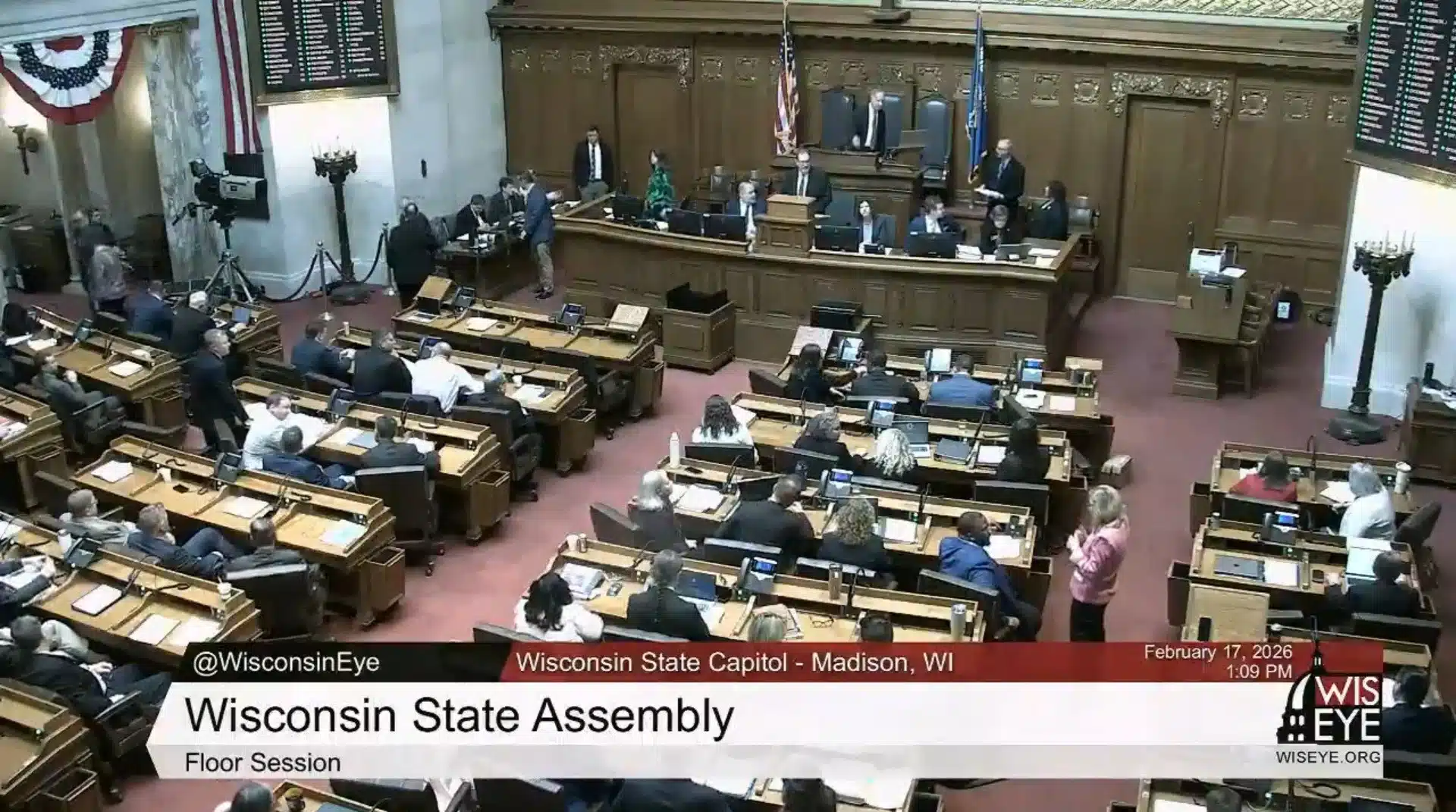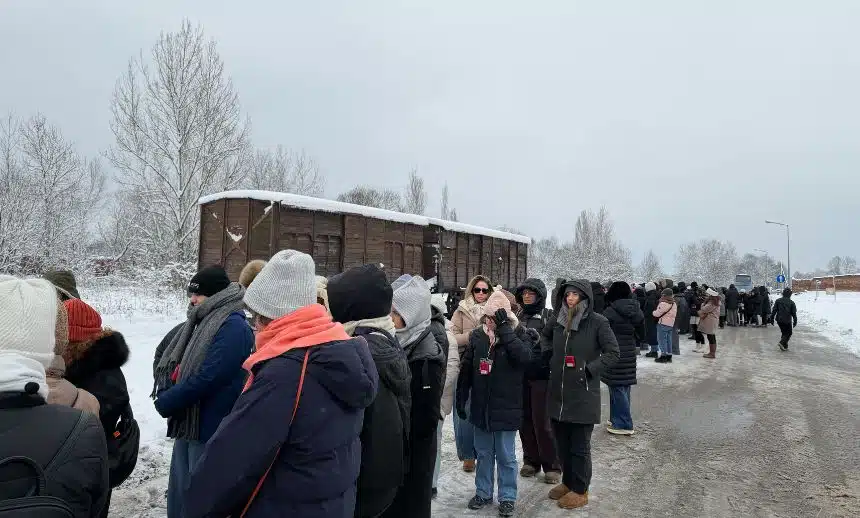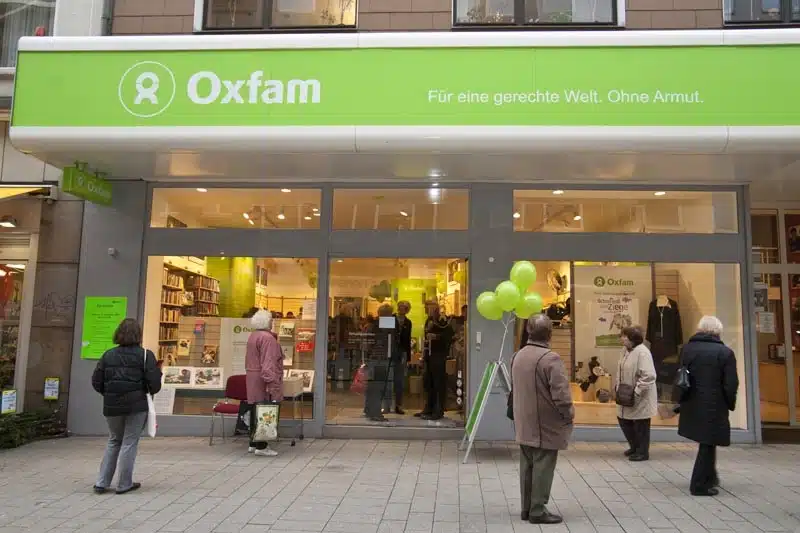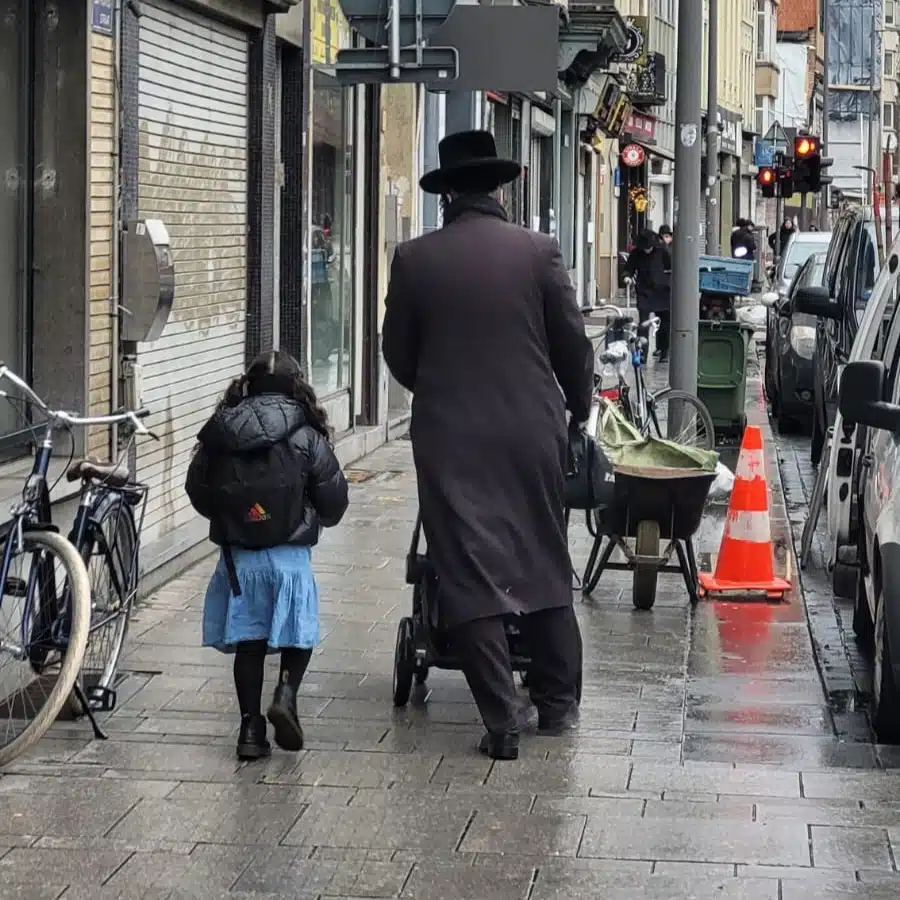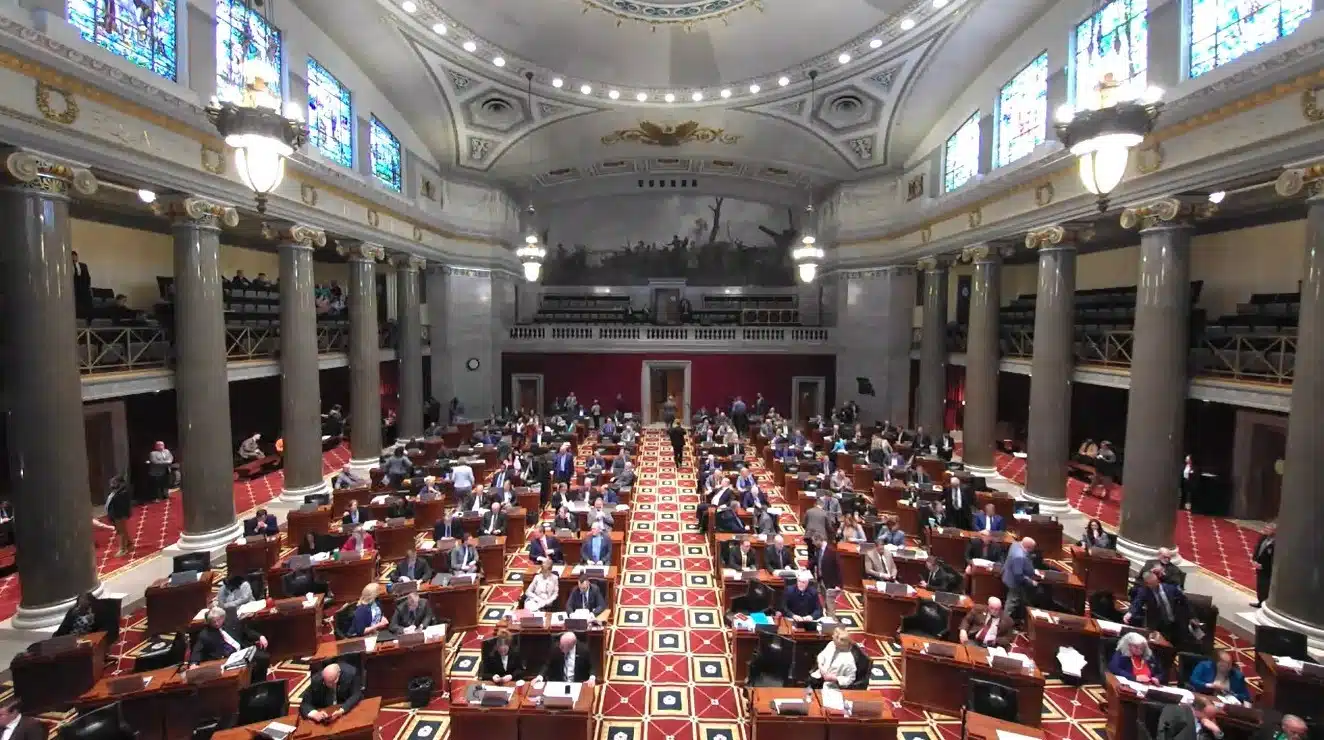|
Getting your Trinity Audio player ready...
|
During her tenure as vice mayor of Quito, Ecuador, from 2019 to 2023, Brith Vaca stood out as an important ally of the Combat Antisemitism Movement (CAM) in efforts to fight Jew-hatred and promote interfaith tolerance and solidarity in Latin America.
Among other activities, Vaca participated in the CAM-organized Central America-Israel Forum II in Panama in September 2022 and helped facilitate the display of CAM’s “No Discriminarás” traveling art exhibit at Quito’s Metropolitan Cultural Center last April.
In an interview with CAM this week, Vaca reflected on her experiences tackling antisemitism and shared her insights on the municipal role in the collective battle against the world’s oldest form of bigotry.
How did the Central America-Israel Forum II contribute to your understanding of the nature of modern antisemitism and how it should be confronted?
“I appreciated the invitation to the Forum. It was important to understand how modern antisemitism proliferates. I have been familiar with the vision of Israel as the Holy Land and the facts of the Holocaust since I was very young. I had the opportunity to visit Israel when I was 14 and the Holocaust museum (Yad Vashem) left a deep impression on me, and this made me do research and learn more about the atrocities of the genocide.”
What specific actions have been taken or are being planned in Quito to address antisemitism?
“When I was vice mayor, we were able to promote the activity that CAM carried out in April 2023 — the ‘No Discriminarás’ exhibit against discrimination and hatred and the open house presented by the Einstein School of Quito, focused on the Holocaust, ‘Righteous Among the Nations’ hero Manuel Antonio Muñoz Borrero (an Ecuadorian diplomat who helped Jews flee the Nazis), and Ecuador’s vote in favor of the establishment of the State of Israel on November 29, 1947. The participants in this activity were young people, ages 14 to 16, from municipal schools and it allowed them to see the reality of antisemitism, and it was truly unbelievable the lack of knowledge about this painful event in the history of humanity.”
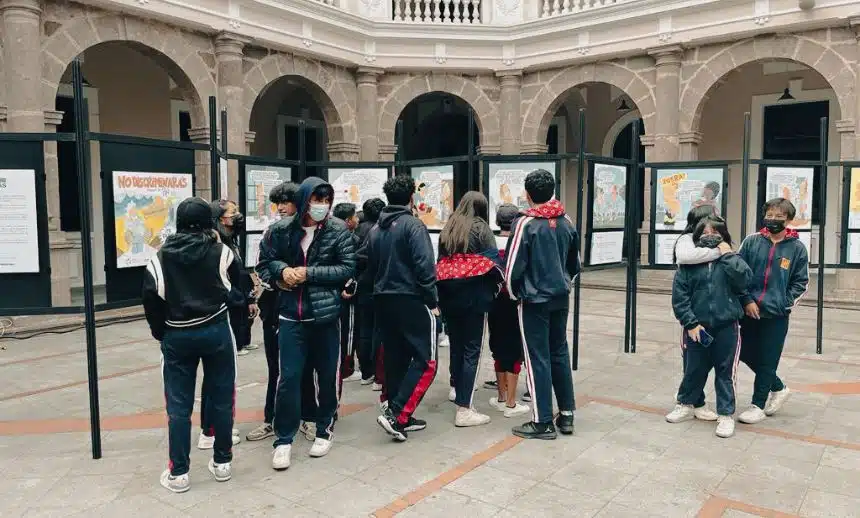
“Another activity that was supported last year was an event calling for release of the hostages taken on October 7th and a march for peace.”
“For me, it would be an honor to collaborate with CAM, and develop actions that raise awareness of ongoing developments in Israel’s war against Hamas. Groups on the far-left that label themselves as progressives are propelling the pro-Palestinian movement.”
What city-oriented strategies or approaches do you think are particularly effective in addressing contemporary manifestations of antisemitism?
“Although in Ecuador we do not speak openly of antisemitism as such, it is more understandable as a term to speak of discrimination, the regulatory framework that governs Ecuador speaks of respect for cultural diversity, ancestral heritage, and non-violence, and we have norms concerning freedom of worship and promoting a culture of peace. This allows us to establish local norms, and these are what I relied on to promote a resolution of the City Council of Quito, Resolution No. C 054-2022, to declare Quito a ‘City Committed to Peace and International City of Peace.’ This helped us to support CAM’s art exhibit that mentioned earlier.”
“Several actions can be taken, the first is the careful cultivation of natural allies such as Christians. We must work with the youth, guided by the values of peace, universal historical memory, global citizenship, and cultural manifestations through art, including the promotion of Jewish and Israeli dance, which is already being done by many Christian churches. I can envision a dance contest, where these groups are invited to present themselves, and there are discussions about Israel, its history and future. And the winning group would receive sponsored trip to Israel, with an itinerary including visits to the country’s most emblematic sites. For Christians, the Land of Israel is sacred, because we love a Jew who changed the history of mankind and transformed our lives — Jesus Christ.”
“Another action could be to develop a training program to train student facilitators focused on promoting the cultures of both peace and global citizenship, and within the program a specific module on antisemitism would included, and this would be taught at schools and universities nationwide.”
“We could set up volunteer and scholarship programs in Israel for young Ecuadorians. In the past, the Ecuadorian government announced 25,000 job opportunities for young people in Israel, but nothing has materialized. This could be an option, but another possibility is a special independent program run by CAM directly, in partnership with representatives of the Israeli government.”
What resources or support are needed to enhance the success of city-level initiatives against antisemitism?
“What is most needed is the presence and direct support of CAM, strategic planning to measure the impact and scope of strategies, events, and activities, and the financial resources to fulfill the established planning.”
What roadblocks do municipal authorities face in implementing strategies and initiatives against antisemitism?
“As I mentioned, there were no obstacles in Quito, because we presented it within the framework vision of promoting a culture of peace, non-discrimination, and non-violence through art.”
What role do you think the International Holocaust Remembrance Alliance (IHRA) Working Definition of Antisemitism can or should play in municipal efforts to combat Jew-hatred?
“In Quito and throughout Ecuador, there is no hatred of Jews, or any practice of antisemitism as such, currently. Now is the time to prevent this from developing, as the last census taken in 2022 recorded a growing Muslim minority.”
“Against this backdrop, the most important role of the IHRA definition is to prevent the spread of antisemitism in Ecuador. To do this, we must build a different strategy, one that seeks to reinforce and encourage education, memory and research on the Holocaust and the history of the State of Israel.”
How can CAM help municipal leaders fight antisemitism?
“I think it is necessary to sensitize and train municipal authorities on matters of peace, historical memory, and the story of the State of Israel, as well as the need to establish a Holocaust museum. I promoted this idea as soon as I joined the City Council in 2019. Unfortunately, the Covid-19 pandemic stopped this initiative from moving forward, but it’s something that could resumed with the support of CAM and the involvement of municipal leaders.”
“On the other hand, we must foster more civic activism, with our constituents adhering to resolutions fighting antisemitism and engaging in related education and advocacy programs.”

